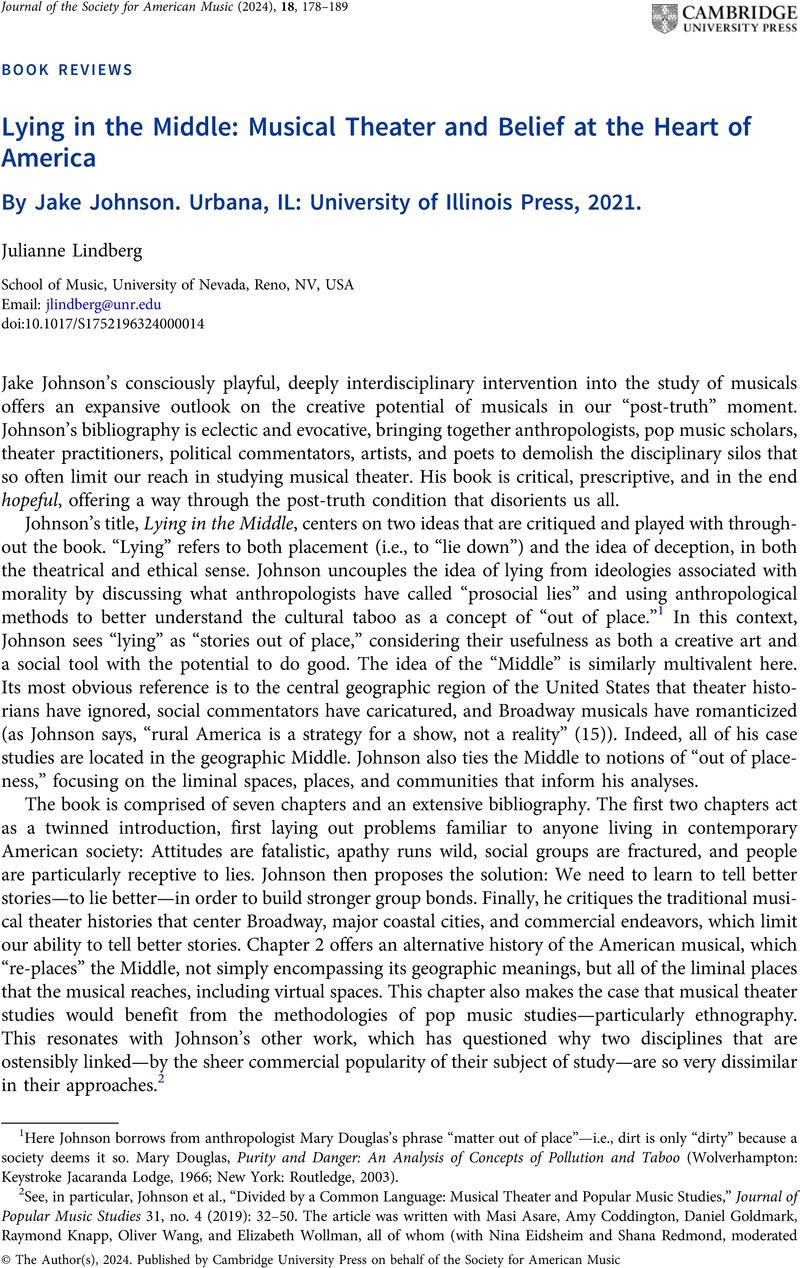No CrossRef data available.
Published online by Cambridge University Press: 03 June 2024

1 Here Johnson borrows from anthropologist Mary Douglas's phrase “matter out of place”—i.e., dirt is only “dirty” because a society deems it so. Douglas, Mary, Purity and Danger: An Analysis of Concepts of Pollution and Taboo (Wolverhampton: Keystroke Jacaranda Lodge, 1966; New York: Routledge, 2003)CrossRefGoogle Scholar.
2 See, in particular, al., Johnson et, “Divided by a Common Language: Musical Theater and Popular Music Studies,” Journal of Popular Music Studies 31, no. 4 (2019): 32–50Google Scholar. The article was written with Masi Asare, Amy Coddington, Daniel Goldmark, Raymond Knapp, Oliver Wang, and Elizabeth Wollman, all of whom (with Nina Eidsheim and Shana Redmond, moderated by Mitchell Morris and Robert Fink) were participants in the symposium, “Estranged Partners?: The Place of Musical Theater Studies within Popular Music Studies,” February 22, 2019, University of California, Los Angeles.
3 Johnson, Jake, Mormons, Musical Theater, and Belonging in America (Urbana: University of Illinois Press, 2019)Google Scholar.
4 “FLDS Productions—Re Sound of Music 3,” September 27, 2022, YouTube video, 8:00, .
5 Sexton, Anne, “Small Wire,” in The Awful Rowing toward God (Boston: Houghton Mifflin, 1975)Google Scholar.
6 Twain, Mark, On the Decay of the Art of Lying (Hartford, CT: Antiquarian Club Lecture, 1880; Portland, OR; Floating Press, 2008)Google Scholar.